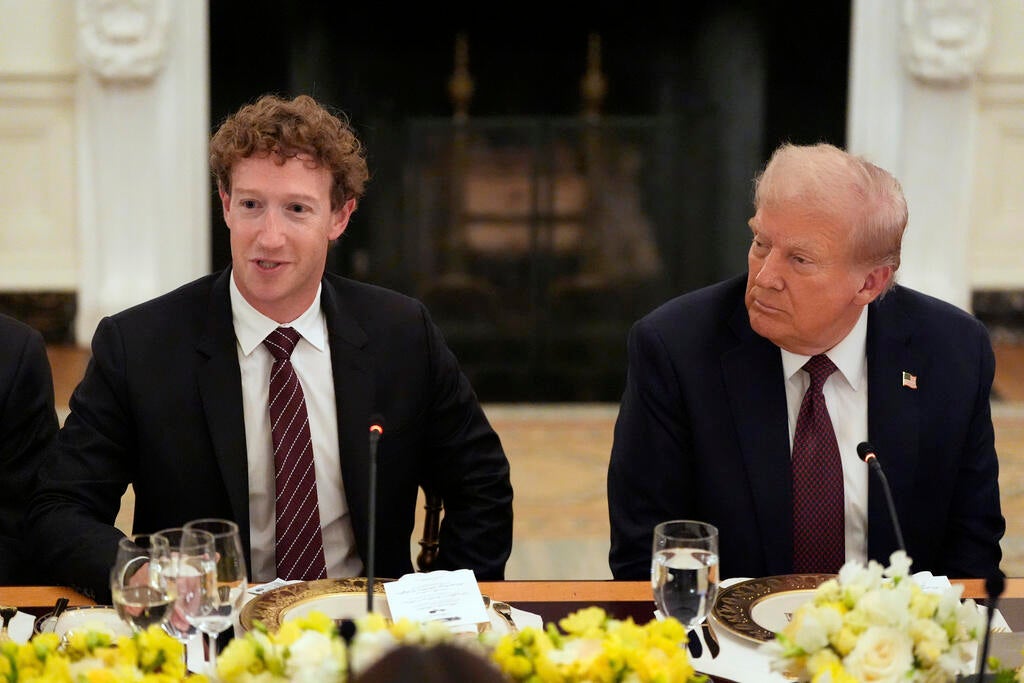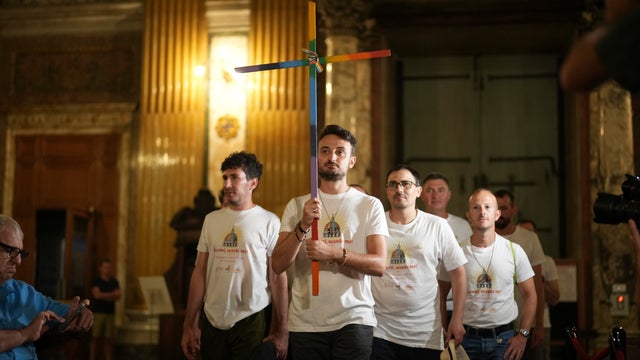

No response returned

Washington — President Trump hosted a dinner Thursday night at the White House with tech giants and other business and political leaders, but Tesla CEO Elon Musk was not be among those attending.
More than a dozen tech titans were invited to the event, including Meta founder Mark Zuckerberg, Apple CEO Tim Cook, Microsoft founder Bill Gates, OpenAI founder Sam Altman, Google CEO Sundar Pichai and Microsoft CEO Satya Nadella, according to the White House. The Hill first the list of invitees.
Mr. Trump was seated next to Zuckerberg, while Gates sat next to first lady Melania Trump. The president — who has cultivated close ties with the CEOs of companies like Apple and Nvidia and from some of them — hailed the business leaders, who he said were "leading a revolution in business and in genius."
"This is definitely a high-IQ group, and I'm very proud of them," the president said.
Mr. Trump invited several of the executives to speak, including Zuckerberg, Nadella and Pichai.
Gates, whose charitable foundation focuses heavily on public health, used much of his speaking time to discuss advancements in vaccine technology — remarks that came hours after Health and Human Services Secretary Robert F. Kennedy Jr., a longtime vaccine skeptic, in a Senate hearing.
Gates lauded Mr. Trump's Operation Warp Speed COVID-19 vaccine initiative and said that, while "we don't need new science" on polio vaccines, new research is needed for diseases like HIV and sickle sell anemia.
When asked by reporters whether he has confidence in Kennedy, Mr. Trump called him a "very good person" who "means very well" and has a "different take."
"It's not your standard talk, I would say," Mr. Trump said of Kennedy's views on vaccines and medicine. "But if you look at what's going on in the world with health, and look at this country also with regard to health, I like the fact that he's different."
Musk — the world's richest person — on X, "I was invited, but unfortunately could not attend. A representative of mine will be there." A White House official also confirmed Musk had been invited.
Musk earlier this year had a public with Mr. Trump as he left the administration, blasting Mr. Trump and his administration over government spending and the Epstein files. He pledged to begin a , dubbed the "America Party," although that has yet to come to fruition.
Earlier this week, Mr. Trump predicted that Musk would eventually return to the Republican Party.
"I don't think he has a choice," Mr. Trump said in an interview this week on "The Scott Jennings Radio Show." "So what's he going to do, he's gonna go with the radical left lunatics? They're lunatics. I don't think he has a choice. He's a man of common sense, he's a good man."
The president said of Musk, "He's a good man. He got off the reservation, incorrectly, and that's okay, because, you know, it's just one of those things." He also characterized the Tesla CEO as "80% super genius, and then 20% he's got some problems," and added, "and when he works out the 20%, he'll be great, but he's got some difficulty."
Thursday's dinner was briefly open to press cameras before continuing behind closed doors. First lady Melania Trump hosted an AI summit earlier in the day, and some of the dinner attendees attended.
Mr. Trump has pursued close relationships with tech CEOs, hosting a number of them for White House meetings and even giving them prime access at his . A number of those CEOs donated to his .
Several tech leaders have paid visits to the White House in the past, with Cook using a White House event last month to unveil a by Apple to manufacture in the U.S. Last month, the U.S. government it was taking a 10% stake in Intel, days after a White House meeting with Intel CEO Lip-Bu Tan. The move from some conservatives and economists.
Meanwhile, Mr. Trump has pressed tech companies to boost their U.S. presence, on imported semiconductors unless companies have agreed to start making chips in the U.S.





